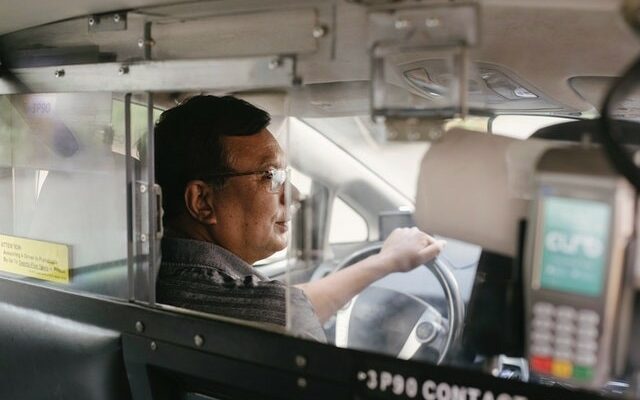Determining ‘worker’ status
On 19th February 2021 the Supreme Court unanimously upheld an Employment Tribunal’s 2016 decision which provided that Uber drivers are workers and in doing so, provided further clarification as to when an individual will be considered a ‘worker’. The Uber decision is not only important to the thousands of Uber drivers operating in the UK, but to all workers and self-employed individuals, and those who engage them.
There are broadly three categories of worker in the UK – employees, workers and self-employed contractors. The distinction is important because employees and workers have different rights and entitlements under employment legislation. With the rise of the gig economy, the distinction between workers and self-employed contractors in particular is often blurred.
A ‘worker’ is defined under section 230(3) of the Employment Rights Act as either:
- An individual who has entered into or works (or worked) under a contract of employment; or
- An individual who has entered into or works (or worked) under any other contract in which the individual undertakes to personally perform any work or services for another party to the contract whose status is not, by virtue of the contract, that of a client or customer of any profession or business undertaking carried on by the individual.
Pursuant to this definition, all employees are workers (‘limb (a)’ workers). ‘Limb (b)’ workers form a much broader category. Individuals typically fall within the ‘limb (b)’ definition if they are required to perform the work personally and when the person for whom the work is being done is not a client or customer of the individual’s business. The Supreme Court decided that Uber drivers were limb (b) workers.
Uber argued that the written agreements they had with drivers made it clear the drivers were independent contractors. The Supreme Court held that determining worker status was a matter of statutory interpretation, not contractual interpretation. The protections provided to workers under employment legislation would be seriously undermined if businesses could simply use written contracts to classify an individual’s status. The written terms of any agreement will be taken into consideration by any court or tribunal when determining status, however, they can look beyond the terms of any contract if it does not reflect the intentions of the parties, or if the contract does not reflect the true agreement between the parties, or if the contract is a ‘sham’.
The key questions asked when determining worker status include (1) is there a contract; (2) does the contract require the service to be provided personally by the individual; and (3) is the other party to the contract a customer or client of any business undertaking or profession carried on by the individual?
The Supreme Court in Uber also took into account the level of subordination and dependence of workers that creates the need for statutory protections. It concluded that there was a ‘relationship of subordination and dependency’ between the drivers and Uber. The drivers had no say in contractual arrangements with passengers as the rate of fares and conditions of travel were all set by Uber. Uber held on to key information including passenger surnames, contact details and the intended destination. The drivers were not able to form contractual relationships directly with passengers or determine rates of pay themselves. Once logged in to the Uber app, Uber had certain controls over the drivers’ choices about accepting rides and could penalise drivers for cancelling or refusing fares. Drivers were rated and Uber could also use poor ratings to penalise drivers. Failure to improve ratings, repeated cancellations or refusals could result in the termination of a driver’s contract with Uber.
The Supreme Court also determined that drivers will be considered workers not only when they are driving, but for all time spent logged into the app including while waiting for fares. The Supreme Court did not provide any clarification on the issue of ‘multi-apping’ and whether or not drivers who were logged on to multiple apps and making themselves available to competitors, while also logged on to and awaiting rides on the Uber app, could be said to be working. The Supreme Court acknowledged that this was a difficult issue but as no evidence that drivers were making themselves available to Uber’s competitors had been put before the Employment Tribunal it could not answer this question. Evidence of ‘multi-apping’ might become an important feature in future cases concerning status.
Impacts of the Uber decision
Worker status means that the Uber drivers in question will be eligible for certain employment entitlements. These include holiday pay, the right to national minimum wage for all working hours, the right to rest periods and limits on working time, the right to seek compulsory trade union recognition and the right not to suffer detriment under whistleblowing provisions of the Employment Rights Act. Uber may be required to make back payments to thousands of drivers and, in addition, HMRC could choose to investigate unpaid taxes and non-payment of the national minimum wage, which could result in penalties.
Upon the Supreme Court’s decision, Uber initially announced that the ruling only related to a handful of drivers who were operating in 2016. Uber have since announced that from 17 March 2021, all of its drivers will be treated as workers. This means that from 17 March, all drivers will:
- Receive the National Living Wage, irrespective of their age, being £8.72 per hour (£8.91 from 1 April 2021), once they have accepted a trip request;
- Be eligible for automatic enrolment into a pension plan which Uber and drivers will make contributions to;
- Receive paid holiday time based on 12.07% of their earnings on a fortnightly basis;
- Be entitled to free insurance to cover sickness, injury and parental payments; and
- Retain the freedom to choose where and when they drive.
Some are still critical of Uber’s moves. Frances O’Grady from the TUC suggested that Uber is ‘cherry picking’ from the Supreme Court’s decision. Drivers will only receive the National Living Wage once they have accepted a trip request which means that they will not be entitled to it while waiting for trips, even if they are logged into the app. The Independent Workers’ Union is calling on HMRC to enforce the Supreme Court’s decision and require Uber to pay a minimum rate from the moment drivers are logged in to the app. Uber have also not made any comment about whether they will provide back pay to drivers for any past entitlements.
There have been calls from workers and businesses who work in the gig economy, including from Uber itself, for governments in the UK and the EU to provide clear laws in line with modern market needs. Consultation on employment status, in particular worker status, was recommended under the Good Work Plan however no proposals have been put forward yet. Other businesses that use a similar model to Uber may feel the pressure to change now that Uber appears to have accepted the Supreme Court’s decision. Not all gig economy firms will be able to continue to operate if they are required to make the same changes to their business model as Uber, or they may have to do so on a smaller scale which may make it harder to compete. Uber are also insisting that the change will not impact British consumers, as many feared an increase in fares if drivers were to be given workers’ rights. The full impact of the decision remains to be seen.
Be sure a self-employed contractor is not, in fact, a worker
Not all businesses will suffer the billion pound liabilities and reputational risks of Uber, but the risks are not insignificant. Uber is facing nearly £12,000 in back payments to each driver in this case alone and around £2 billion in unpaid taxes. In some cases, individuals might prefer to be considered self-employed and would not even consider bringing any challenges. However, this does not negate the need to ensure status has been determined correctly as HRMC can penalise businesses and seek to claim unpaid taxes. Those who engage self-employed contractors, should therefore check their arrangements to ensure they are not in fact, engaging workers.
Regardless of the written terms of any agreement, an employment tribunal will look at the reality of the whole situation when determining status. A self-employed contractor is an individual who is genuinely running their own business. They are free to decide when they work and can turn down work, have the right to appoint a substitute to perform work, they decide how they carry out the work and are responsible for their own holiday and sick leave and pay, and for any income tax and NICs payable on their earnings. Self-employed contractors often perform work for more than one person. Self-employed individuals typically use their own tools and equipment, are paid upon submission of an invoice and usually have their own insurance. None of these factors are determinative on their own; it is important to consider all of the circumstances. The Supreme Court’s focus on control in Uber, reminds businesses to also consider the degree of control they have over a contractor’s work.
The Supreme Court’s decision also comes before changes to the IR35 rules take effect from 6 April 2021. These changes place responsibility for determining the employment status of individuals working through personal service companies in the hands of the ‘client’ or ‘end user’. Employment status has an impact on how income tax and NICs are paid on an individual’s earnings however there is no ‘worker’ status in tax law. Tax law only recognises self-employed individuals and employees for tax purposes. The tests under tax law differ slightly to status tests in employment law, however it means that now is as good a time as ever to revisit working arrangements and ensure they are up to date and in line with the current law.
If you have any queries on determining ‘worker’ status or any other employment law matters please do get in touch.


